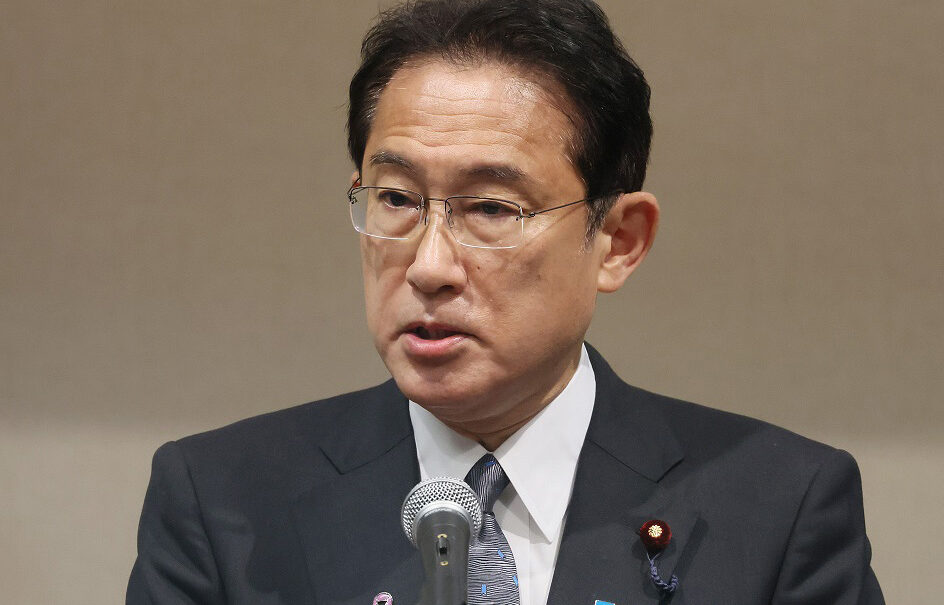All the anti-Chinese military pacts of Japan and the United Kingdom

Japan and the UK will soon sign an agreement to facilitate mutual access for troops to their territories. The pact is anti-Chinese, but it also signals the desire to reduce dependence on the United States. Here because
Japan and the United Kingdom will sign a major defense agreement in December to strengthen military collaboration between them and with the United States in Asia-Pacific, with the aim of increasing deterrence against China in the event of a war for Taiwan.
"MUTUAL ACCESS AGREEMENT"
The pact's name is the Reciprocal Access Agreement (RAA) and is similar, according to two sources in the Financial Times , to the one Japan signed with Australia in January. The agreement will simplify the bureaucratic procedures that regulate the entry of British troops into Japanese territory, and vice versa, in order to facilitate joint exercises and logistical cooperation.
"THE GEOPOLITICAL CENTER OF THE WORLD"
Zack Cooper, an Asian security expert and analyst at the American Enterprise Institute think tank, said the agreement will allow London to more easily deploy and train its armed forces in the Indo-Pacific region, described as " the center geopolitical of the world ”by the government of former prime minister Boris Johnson. Negotiations for the RAA began right under Johnson, when he met his Japanese counterpart Fumio Kishida in London last May.
PARTNERSHIP ON FIGHTING PLANES
In addition to the Mutual Access Agreement, Tokyo and London are also expected to reveal details of their joint fighter aircraft development partnership in December.
– Read also: Tempest, what the head of the Italian Air Force will do in Japan
WHY THE UNITED STATES ARE OVERCOMMED
Furthermore, the geopolitical importance of the RAA lies in the breaking of a tradition. Usually, in fact, military contacts between the main Asian-Pacific powers do not take place directly, but through the mediation of the United States, according to a model that Cooper defines as a " hub-and-spokes ", borrowed from the aviation lexicon. . More simply, it is like a bicycle wheel: the United States is the hub, the central part around which the wheel turns; Japan and Australia, on the other hand, are the connecting rays. Now, however, Tokyo, Canberra and London seem to want to take on the roles of hubs, or hubs .
THE FEARS ABOUT AMERICAN RELIABILITY
According to Cooper, this change "is probably a reaction to both the growing pressure from China and the growing concern about the reliability of the United States." Joe Biden's current administration has focused heavily on recovering good relations with allies and partners, and has set a rhetoric of America's "comeback" on the international stage . Ex-President Donald Trump, however, had alarmed Japan – for example – with threats of withdrawal of American troops stationed in the country for cost reasons.
THE ROLE OF THE PHILIPPINES
Christopher Johnstone, a former US Defense Department official, called the RAA an "important step" for Japan, which underscores the country's intention to diversify its security relations in order to reduce its extreme dependence on Washington. In practice, however, the agreement will have a limited impact, at least initially, because military contacts between the Japanese and the British are scarce.
More strategically significant would be a mutual access agreement between Japan and the Philippines (another American ally in Asia), which would send a strong message to China. Not surprisingly, the United States would also like to expand access to bases in the Philippines, which would constitute a very important platform in the event of a war in the Taiwan Strait.
THE AGREEMENT WITH NEW ZEALAND
In April, Japan and New Zealand, an ally of the United States, announced the opening of negotiations for an agreement on the sharing of classified information between the two countries that could later lead to Tokyo's entry into the Five Eyes. intelligence exchange alliance between the United States, the United Kingdom, Canada, Australia and New Zealand.
WAR GAMES AND TOMAHAWK MISSILES
Tokyo, however, is not loosening ties with Washington, quite the contrary. In the past two years, joint exercises and war games have increased in number, and Japan is close to acquiring Tomahawk cruise missiles (US company Raytheon builds them), which would allow it to hit targets in eastern China.
ARTIFICIAL PORTS AND AMMUNITION
Japan's plans also include the construction of artificial and "transportable" ports that would allow its warships to unload supplies and soldiers on islands close to Taiwan, such as the Nansei.
In September, Defense Minister Yasukazu Hamada announced the expansion of fuel and ammunition storage facilities right on the Nansei : in this way, Tokyo will be able to provide more support to the US military should Washington engage in a conflict against Beijing.
This is a machine translation from Italian language of a post published on Start Magazine at the URL https://www.startmag.it/mondo/giappone-regno-unito-accordo-militare/ on Fri, 11 Nov 2022 06:46:54 +0000.
